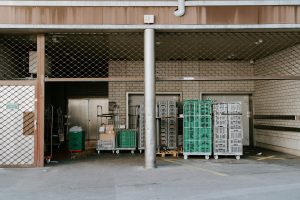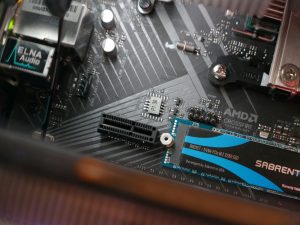Exploring the Potential of Smart Food Waste Trackers
In today’s world, food waste has become a major global issue, with an estimated 1.3 billion tonnes of food being wasted each year. This not only has a major impact on the environment, but it also has serious implications for global hunger and poverty. Fortunately, advancements in technology have opened up new possibilities for tackling this problem. One innovative solution that has gained attention in recent years is smart food waste trackers. These devices are designed to monitor and track food waste, with the goal of reducing it and promoting more sustainable food consumption practices. In this article, we will delve into the potential of smart food waste trackers and explore how they can help address the issue of food waste. 
The Problem of Food Waste
Food waste is a complex issue that affects every stage of the food supply chain. From farmers discarding imperfect produce, to supermarkets throwing away unsold items, to consumers letting food spoil in their homes, the problem is widespread and multifaceted. At the production stage, food waste can occur due to factors such as weather conditions, pests, and low market demand. In the distribution and retail stages, food may be discarded due to expiration dates, aesthetic standards, or overstocking. And at the consumer level, many people end up throwing away perfectly edible food simply because they buy too much or do not use it before it spoils.
All of this food waste has a significant environmental impact. The resources used to produce, distribute, and dispose of this wasted food, such as water, energy, and land, are essentially being wasted as well. And when food decomposes in landfills, it produces methane gas, which is a major contributor to climate change. In addition, food waste also has a social impact, as it means that people are going hungry while perfectly good food is being discarded.
The Rise of Smart Food Waste Trackers
In recent years, more and more companies and individuals have become aware of the issue of food waste and have started looking for ways to address it. This has led to the development of smart food waste trackers, which are devices that use technology such as sensors, cameras, and artificial intelligence to track and analyze food waste in different settings. These devices can be used in various settings, from individual households to large-scale food service businesses, and they provide valuable data on food waste that can be used to inform and improve food consumption practices.
Sensors and Data Collection
One of the key features of smart food waste trackers is their ability to collect and analyze data on food waste. By using sensors, these devices can track the types and quantities of food being discarded, as well as the reasons for the waste. This data can help restaurants, supermarkets, and households identify patterns and areas for improvement in their food consumption habits. For example, if a restaurant notices that a significant amount of food is being thrown away at a certain time of day, they may be able to adjust their ordering and preparation practices to reduce waste.
Alerts and Reminders
Another useful feature of smart food waste trackers is their ability to send alerts and reminders to users. For example, a smart fridge could remind a person when the milk is about to expire or suggest using the wilted vegetables in a soup. These reminders can help individuals reduce their personal food waste and make more conscious choices when it comes to food consumption. In addition, some smart food waste trackers can also send alerts to businesses when food is approaching its expiration date, giving them the chance to sell or donate it before it goes to waste.
Encouraging Sustainable Practices
By providing real-time data and reminders, smart food waste trackers can encourage more sustainable food consumption practices. Whether it’s through reducing waste, finding creative ways to use leftovers, or donating excess food to those in need, these devices can help individuals and businesses make more environmentally and socially responsible choices. In the long run, this can have a significant impact on reducing the amount of food that goes to waste.
Conclusion
Smart food waste trackers have the potential to play a significant role in addressing the issue of food waste. By using technology to track, analyze, and provide real-time data, these devices can help individuals and businesses reduce their food waste and make more sustainable choices. While there is still much work to be done to tackle the global food waste crisis, smart food waste trackers offer a promising solution that can make a real difference in the fight against food waste.










